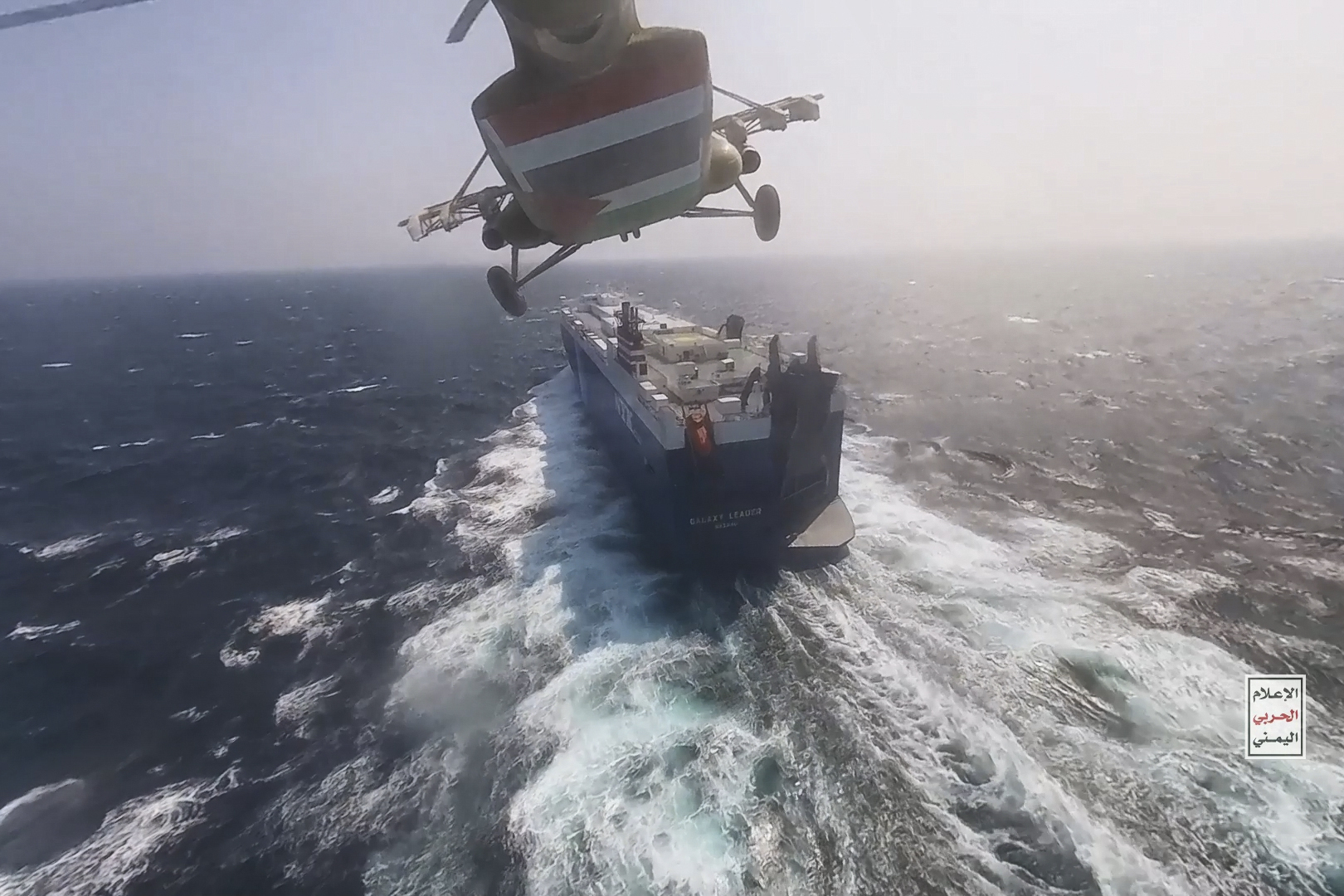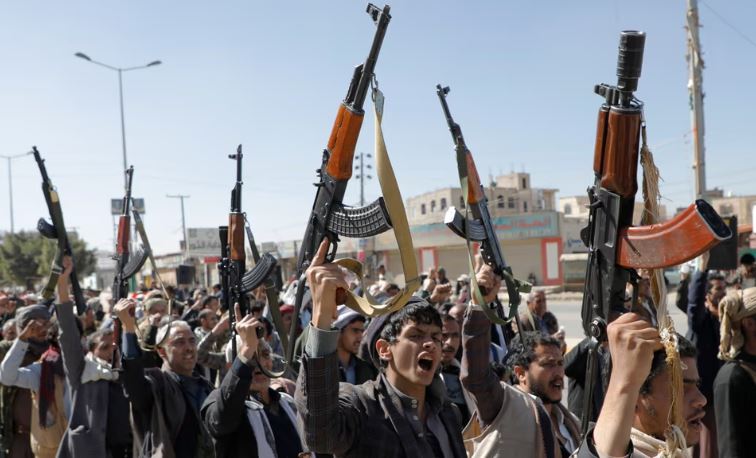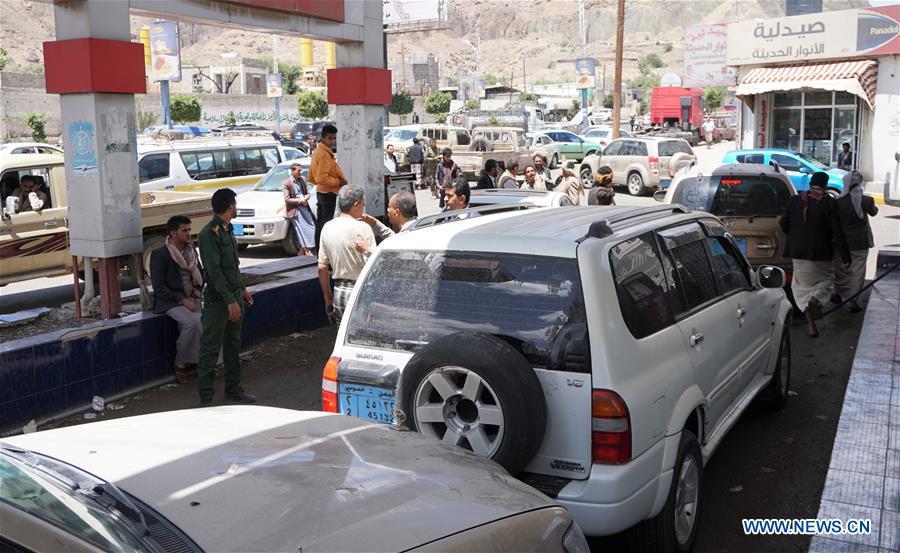Here’s a real-life scenario reminiscent of movie plots where the antagonists are firmly warned by the world’s most powerful protagonists.
In this case, the antagonists are the Houthi rebels in Yemen.
Officially known as Ansar Allah, meaning ‘supporters of God’, the Houthi movement is a Shia Islamist political and military organization that emerged from Yemen in the 1990s.
The Houthis have the ambition to govern all of Yemen and support external movements opposing the United States, Israel, and Saudi Arabia.
Following the outbreak of the 2023 Israel–Hamas war, the Houthis began launching missile attacks on Israel and targeting ships in the Red Sea off Yemen’s coast.

On 9 Jan, they initiated their most extensive attack yet, launching 18 one-way attack drones, anti-ship cruise missiles, and an anti-ship ballistic missile at various international commercial vessels and warships in the Red Sea.
However, their actions did not go unanswered. On 11 Jan, the US and British militaries conducted extensive bombings of over a dozen sites used by the Iranian-backed Houthis in Yemen.
This significant retaliatory strike utilized warship- and submarine-launched Tomahawk missiles and fighter jets.

Now, let’s delve into 10 simplified facts about this situation:
1. Houthis’ Alleged Support for Palestinians
The entire series of events was triggered by the Houthi rebels’ decision to attack ships in the Red Sea.
As an Iran-backed group that considers Israel an enemy, the Houthis gained notoriety.
By 2010, according to the UN Security Council, the group had between 100,000 and 120,000 followers, comprising armed troops and supporters.
With the onset of the Israel-Hamas war, the Houthis began targeting Israel with drones and missiles from 19 Nov 2023.
Most of these attacks were intercepted by Israeli and US forces.
The Houthis also hijacked a commercial ship in the Red Sea, claiming it was an act of solidarity with the Palestinians, and have since attacked over 20 other vessels.
They assert their actions are to aid the Palestinians and facilitate humanitarian aid into Gaza, targeting ships purportedly connected to Israel.
However, many of these ships had no links to Israel, leading many shipping lines to avoid the area altogether and opt for longer routes around southern Africa.
2. Skyrocketing Oil Prices
The Houthi attacks on the Red Sea significantly impacted oil transport.
Commercial ship tracking data revealed at least nine oil tankers halting or diverting their routes.

By 1230 GMT, the number of commercial ships entering the narrow waterway between the Red Sea and the Gulf of Aden had fallen from an average of 38 to just 20.
This decline led to a surge in Brent crude oil prices, though they later receded somewhat.
Bimco and Intertanko, representing a significant portion of the world’s tonnage, advised a temporary halt to Red Sea transits due to the US strikes and potential escalation.
The US government tracked 27 attacks on commercial shipping, causing over 2,000 ships to reroute, significantly impacting global trade and raising concerns about inflation and supply chain disruptions.
3. Extensive US Strikes on Houthi Targets
The US Air Force’s Mideast command reported striking over 60 targets across 16 sites in Yemen.
These targets included command-and-control nodes, munitions depots, launching systems, production facilities, and air defense radar systems.
White House spokesperson John Kirby indicated these strikes aimed to disrupt the Houthis’ missile and drone capabilities, which had been threatening Red Sea shipping.
President Joe Biden and UK Prime Minister Rishi Sunak justified these actions as necessary responses to protect global shipping and freedom of navigation, according to BBC News.
4. International Coalition Response
In response to the escalating situation, the US, alongside allies, sent a naval task force in December.
Countries such as the Netherlands, Australia, Canada, and Bahrain provided support, while others like Germany, Denmark, New Zealand, and South Korea endorsed the attacks in a joint statement.
However, not all US allies supported the strikes, with Italy, Spain, and France opting out due to concerns over potential escalation.
Russia called for an emergency U.N. Security Council meeting, while Egypt, controlling the Suez Canal, expressed deep concern.
The UK’s involvement emphasized the Biden administration’s strategy of forming a broad coalition to counter the Houthis.
5. Anticipation of Houthi Retaliation
Senior US administration officials acknowledged the strikes would likely degrade Houthi capabilities but also anticipated a possible response.
The US used warplanes from the Navy aircraft carrier USS Dwight D. Eisenhower and Air Force fighter jets, along with Tomahawk missiles launched from Navy destroyers and a submarine.
Houthi spokesperson Nasruldeen Amer announced a strong and effective response to these strikes, according to Al Jazeera.

Even as Houthi leaders promised retaliation, Biden warned of further military action if their attacks on maritime vessels continued.
6. UN Security Council’s Resolution Against Houthis
On 10 Jan, the UN Security Council passed a resolution demanding the immediate cessation of Houthi attacks and implicitly condemned Iran, their alleged weapons supplier.

The resolution, which passed with 11 votes in favor and four abstentions — from Russia, China, Algeria, and Mozambique — also called for the release of the Japanese-operated Galaxy Leader, seized by the Houthis.
Despite this clear message from the international community, Mohammed Ali al-Houthi, head of Yemen’s Houthi supreme revolutionary committee, dismissed the resolution as a “political game” and accused the US of violating international law.
7. The Strategic Importance of the Red Sea
The Red Sea is a vital artery for global commerce, with around 12% of the world’s trade, including essential commodities like oil, natural gas, and grain, passing through it.
The shipping route is particularly crucial for Asia-Europe trade, with an estimated $1 trillion worth of goods transiting through the strait annually.
The disruption caused by the conflict has led to longer, costlier shipping routes around Africa and the Cape of Good Hope, adding up to two weeks to voyages and escalating costs for shipping and fuel.
This situation has already contributed to a noticeable decline in world trade.
8. Houthis Portrayed as Fighters for Economic Development
The American invasion of Iraq in 2003 significantly radicalized the Houthi movement.
They adopted a slogan opposing the US and Israel and declared themselves as Ansar Allah, which means supporters of god.
The Houthis have successfully positioned themselves as national heroes in the eyes of some Yemenis, portraying the conflict as a defense against foreign aggression.
Despite Yemen’s large size, most of it is desert, and its population of about 28 million faces near famine conditions.
The foreign military strikes are perceived within Yemen as exacerbating hunger, spreading diseases like cholera, and displacing hundreds of thousands of families.
9. Discrimination Against Yemen’s Sunnis
The conflict in Yemen has disproportionately affected the Sunni population. Yemen, with its history of tribal, regional, and sectarian divisions, has seen heightened tensions between the Sunni and Shia communities, particularly the Zaidi Shia Houthis.
The Houthi rebels adhere to the Zaidi branch of Shia Islam, while the other branch on the opposing end is the Sunni Islam.
Shias believe that leadership should have stayed within the Prophet’s family, with Ali, the Prophet’s cousin and son-in-law, as the rightful first Imam and successor.
Sunnis believe that the new leader of the Muslim community after Muhammad’s death should be elected from among those capable of the job. They respect the first four caliphs as his rightful successors.
The Houthis, who have taken control of significant parts of the country, view those not aligned with them, especially Sunnis, with suspicion, often considering them collaborators with the Saudi-led coalition.
This has led to widespread discrimination against Sunnis, who, in the absence of functioning government institutions, have limited options for protection and recourse.
10. Yemenis Bracing for Further Conflict
As Yemen emerges from nearly a decade of war, its people are preparing for the possibility of renewed conflict.
Long queues at petrol stations and a rush to stock up on essentials like flour and rice are common sights, with fears of fuel shortages and food scarcity looming.

In Hodeidah, Yemen’s main Red Sea port, there’s an increased military presence, and residents recall the 2015 war’s heavy toll, including bombings, scarcity of basic supplies, and disruptions to life-saving aid.
The possibility of further escalation keeps the nation on edge, with many Yemenis anxious about what the future holds.




